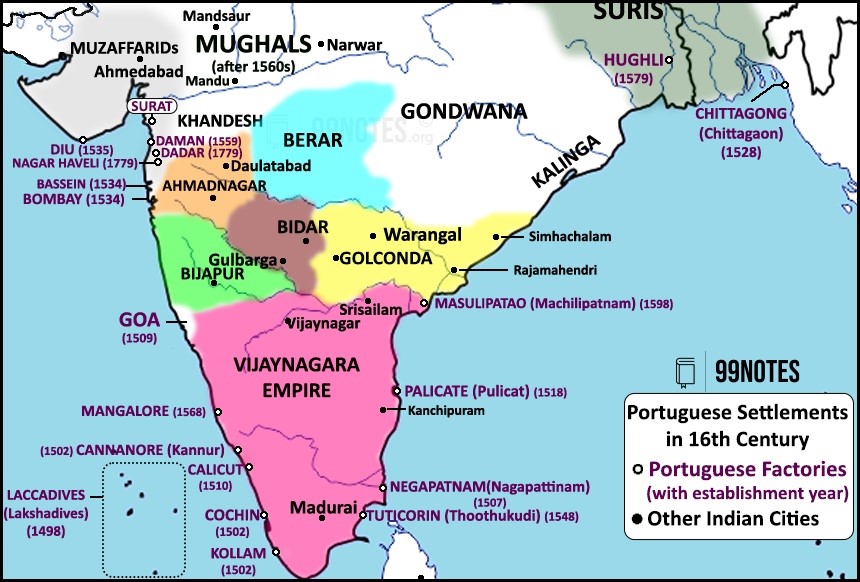7667766266
enquiry@shankarias.in
A closer study of Bengali cuisine, language, and culture shows a greater influence of Portuguese in the Bengali culture.

Albuquerque (1509- 1515), the successor of Almeida, was the real founder of the Portuguese empire in India.
Positive Impacts
Negative Impacts
|
Mughal-Portuguese Relation |
|
Under Portuguese law, individuals born in Goa before December 19, 1961, and two subsequent generations have the option to register as Portuguese citizens.